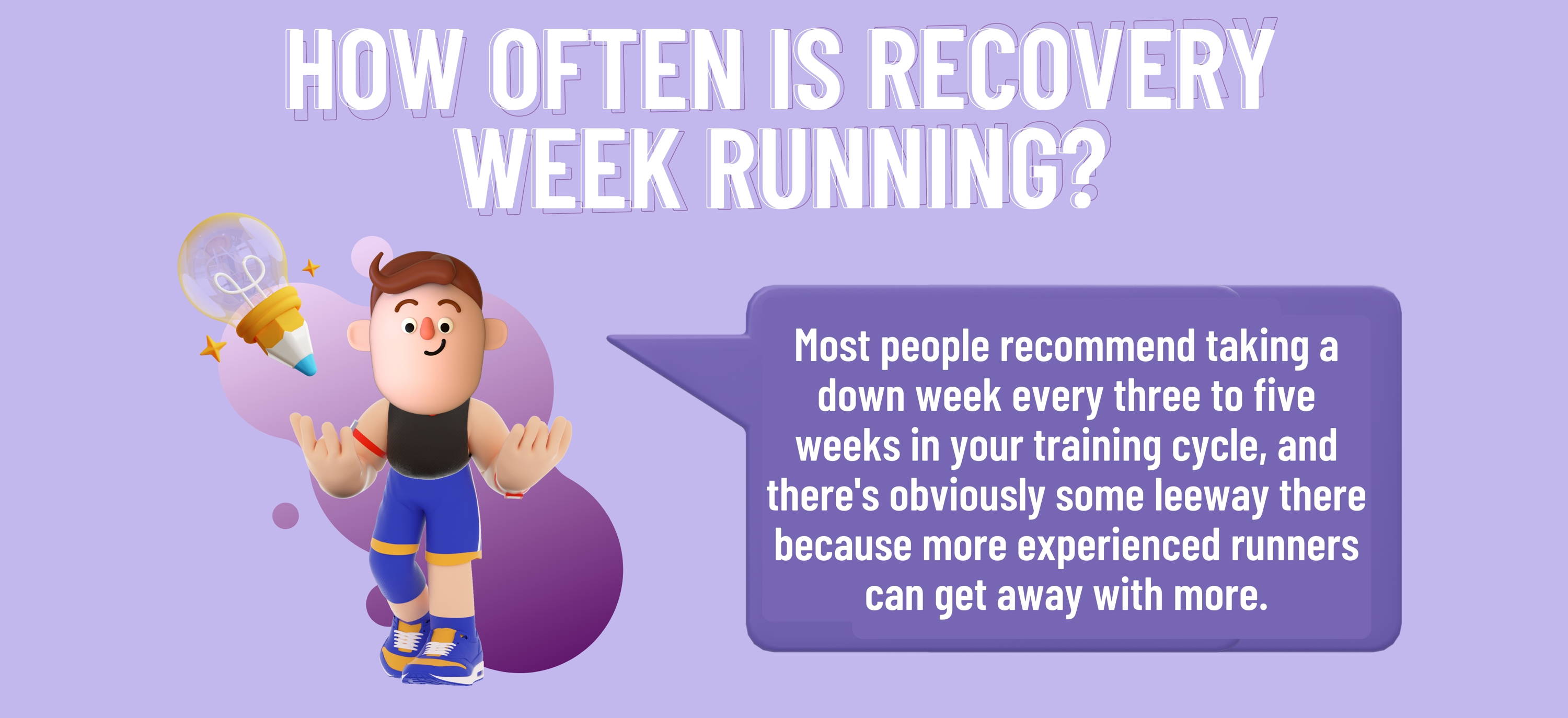
Have you just completed your first marathon? Congratulations! Have you just completed your first marathon? Congratulations!
You should be proud of yourself for completing such a huge accomplishment. Now that you’ve finished, it’s time to take some time off from running. How often should runners have recovery weeks? How many days per week do you need to rest your body? These are all questions I will answer in the following article!
If you want to continue improving and run more marathons, then this is an important topic for you. The best way to get better at something is by practicing it regularly, but if we practice too much or too often without taking breaks, then our performance can suffer. This is especially true when it comes to endurance sports like running, where the body needs adequate time to recover after each session so that it can adapt and become stronger over time.
Resting adequately between training sessions allows us not only enough energy but also the right conditions (elevated levels of certain hormones) needed for muscle growth and repair, which ultimately leads to improved performance over time.
For muscles fibers (the building blocks of muscle tissue) as well as other tissues in our bodies including tendons, ligaments, cartilage, etc., they need a chance to heal up from micro-tears caused by training stress before being put under further strain again through exercise. Without sufficient rest periods between workouts, these injuries could occur, leading to not only poor performance but also possibly injury.
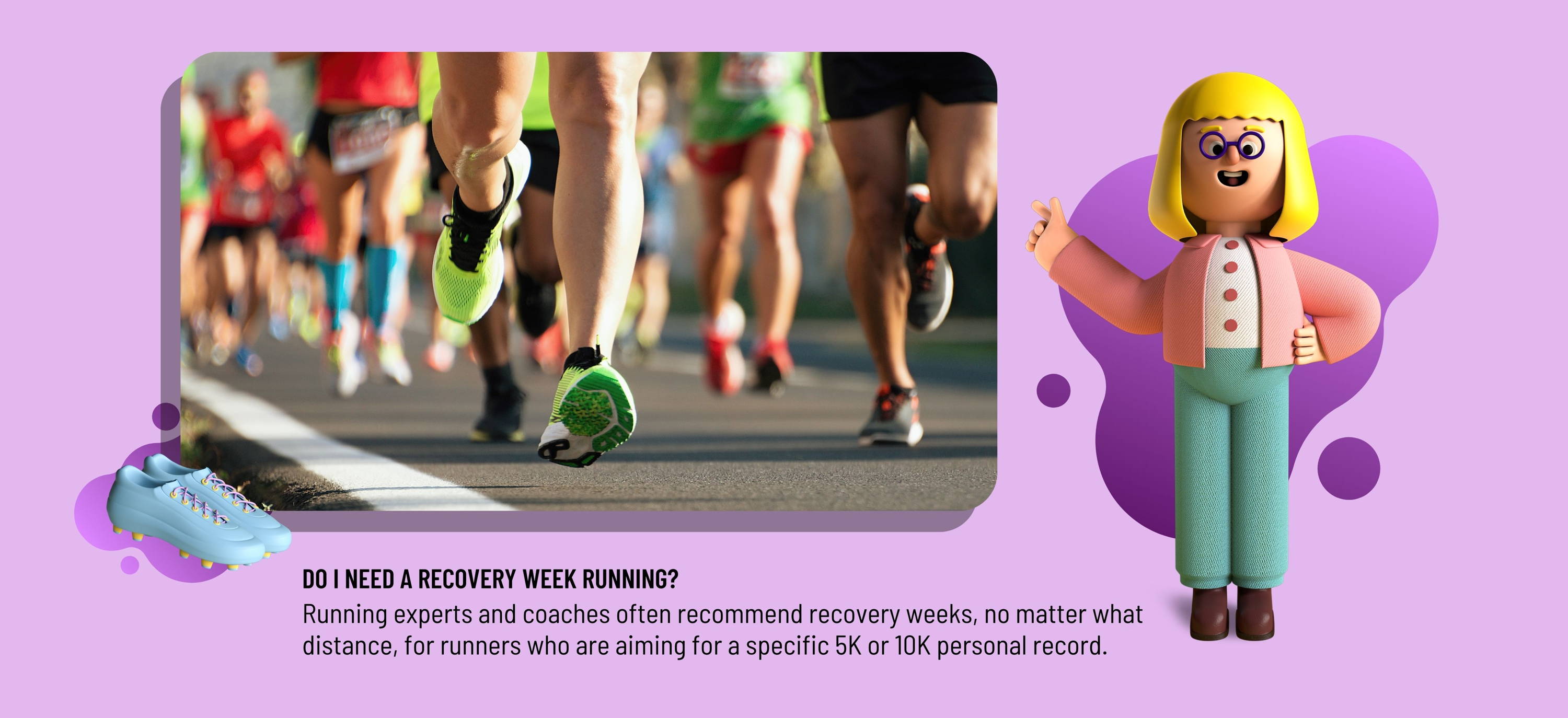
What is recovery week running?
Running a lot of miles can be tough on your body, especially if you don’t take the time to recover. If there is no recovery week in place then it's important for runners at all levels and goals who have been adding more running every week as part of their training routine-especially those trying to achieve specific 5K or 10K personal records by adding these extra days off into account will need them more than ever!
How often you should be doing recovery week running?
The frequency of down weeks varies from athlete to athlete, but most athletes decrease their mileage every three to eight weeks. Some runners use them as an opportunity to increase the amount they're running with less intensity, which is good for easing back into a regimen following injury or another difficulty.
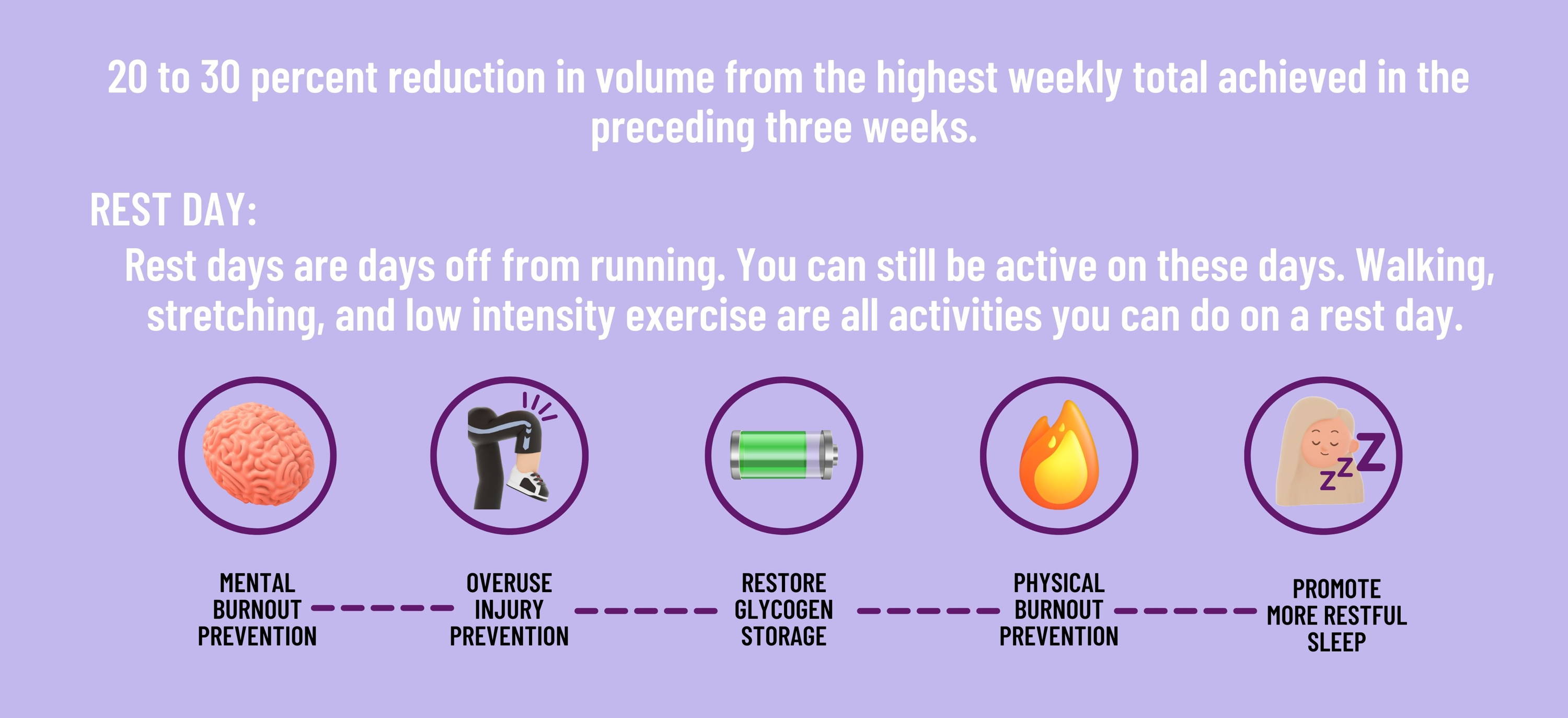
What are the benefits of recovery week running?
Recovery weeks are intended to help the body relax and muscles heal. The weekly mileage will be less, but this isn't a pull away from running entirely! Except to do some easy jogging or slow hiking in addition to your speed workouts on these days, depending on how you're feeling at the moment in time.
To help improve your training with a recovery week, decrease your highest mileage by around 30-50% every 3-4 weeks of training. This will allow you sufficient time to build up fresh legs while giving the body some much-needed relaxation before it overloads on intense workouts that can lead to fatigue or injury in less experienced runners.
Workout frequency may be reduced slightly, just as long-distance runs are cut back significantly (or eliminated). If there's anything leftover from previous high-volume sessions after taking these measures, then great! Those efforts should get out towards improving one key aspect: speed Workouts seem like they would suffer without increased intensity, so now's an ideal opportunity to make those workouts count as much as possible.
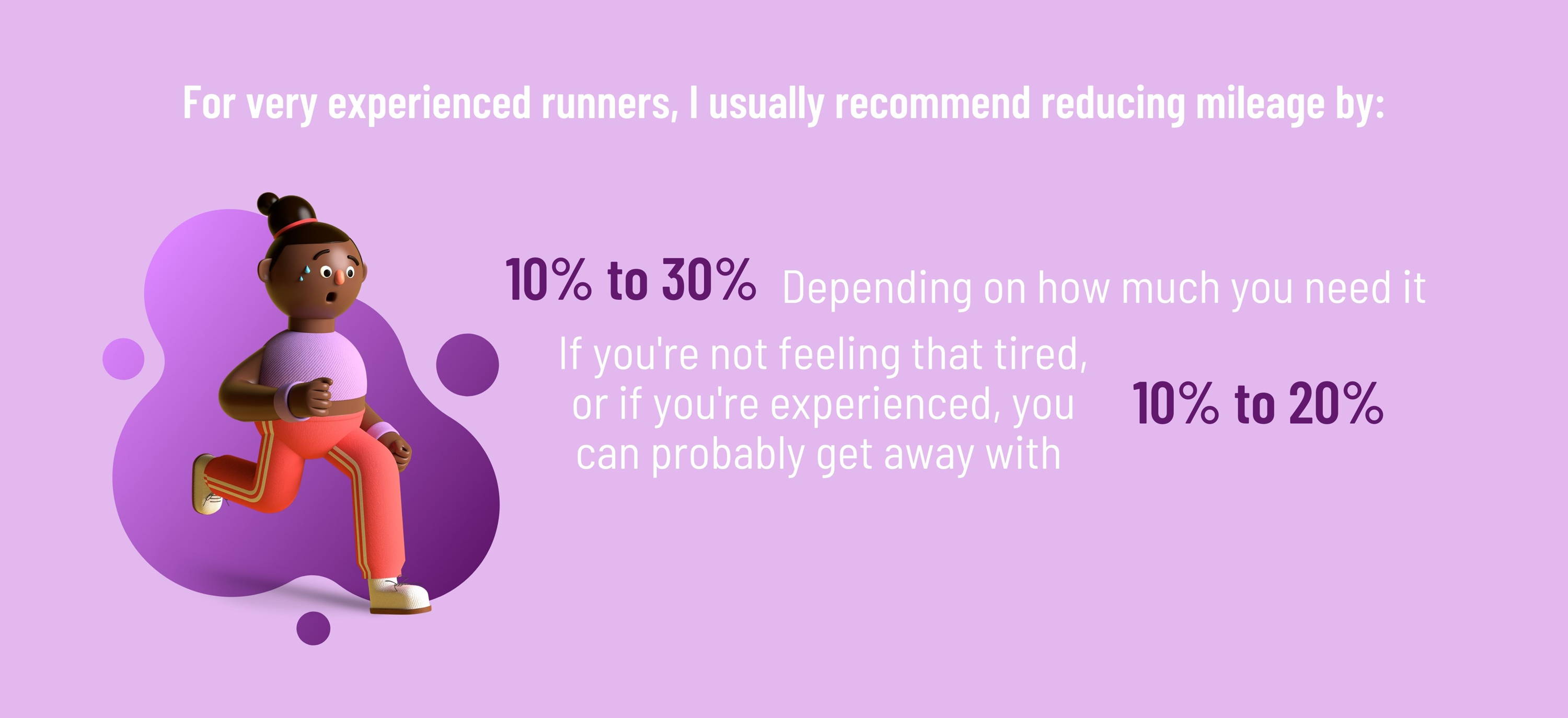
What exactly is down week?
What are cutback weeks?
These strategic periods can be used strategically before big races or just as general maintenance so that fatigue doesn't become an issue over time due to its persistence in certain athletes, like runners who heavily stress their muscles with long-distance runs on top of heavy-duty lifts (and maybe push-ups).
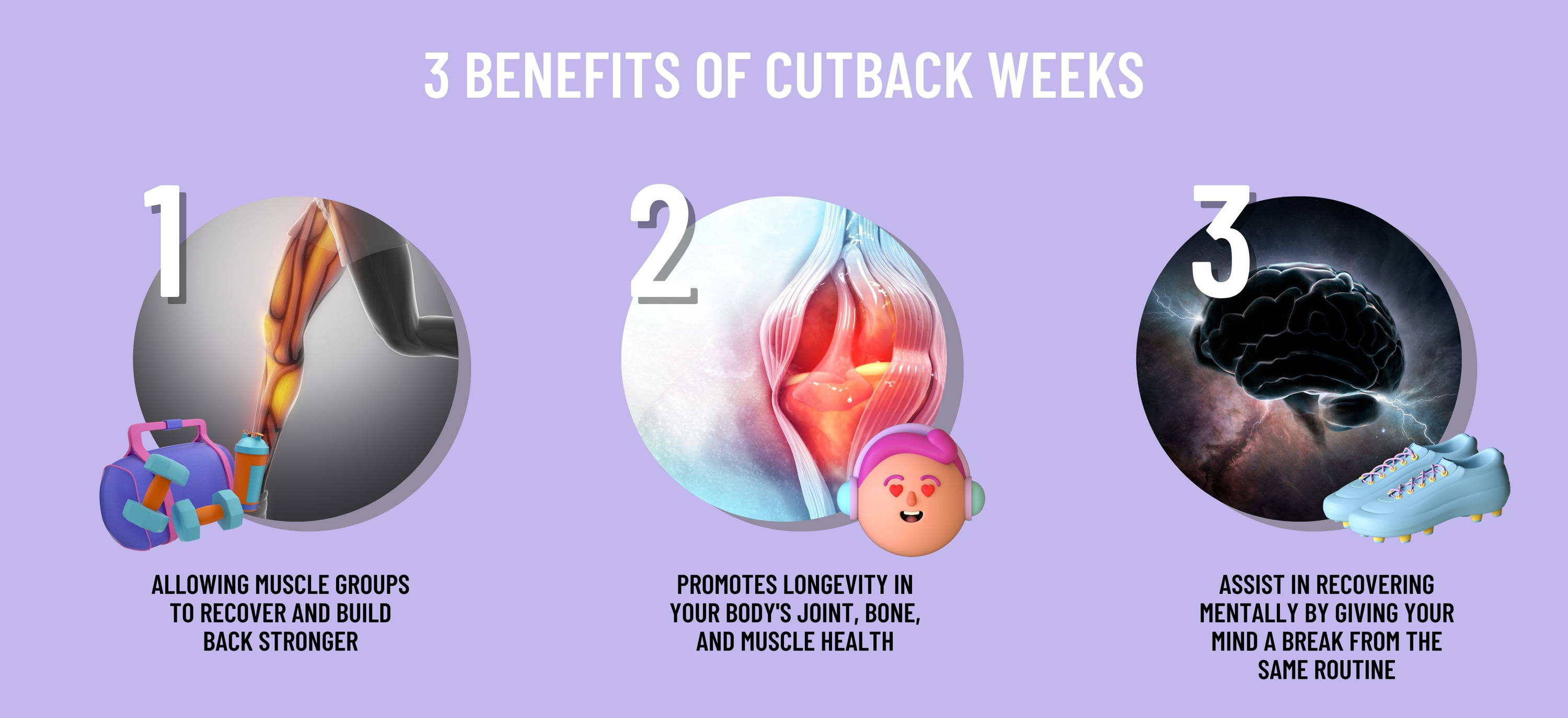
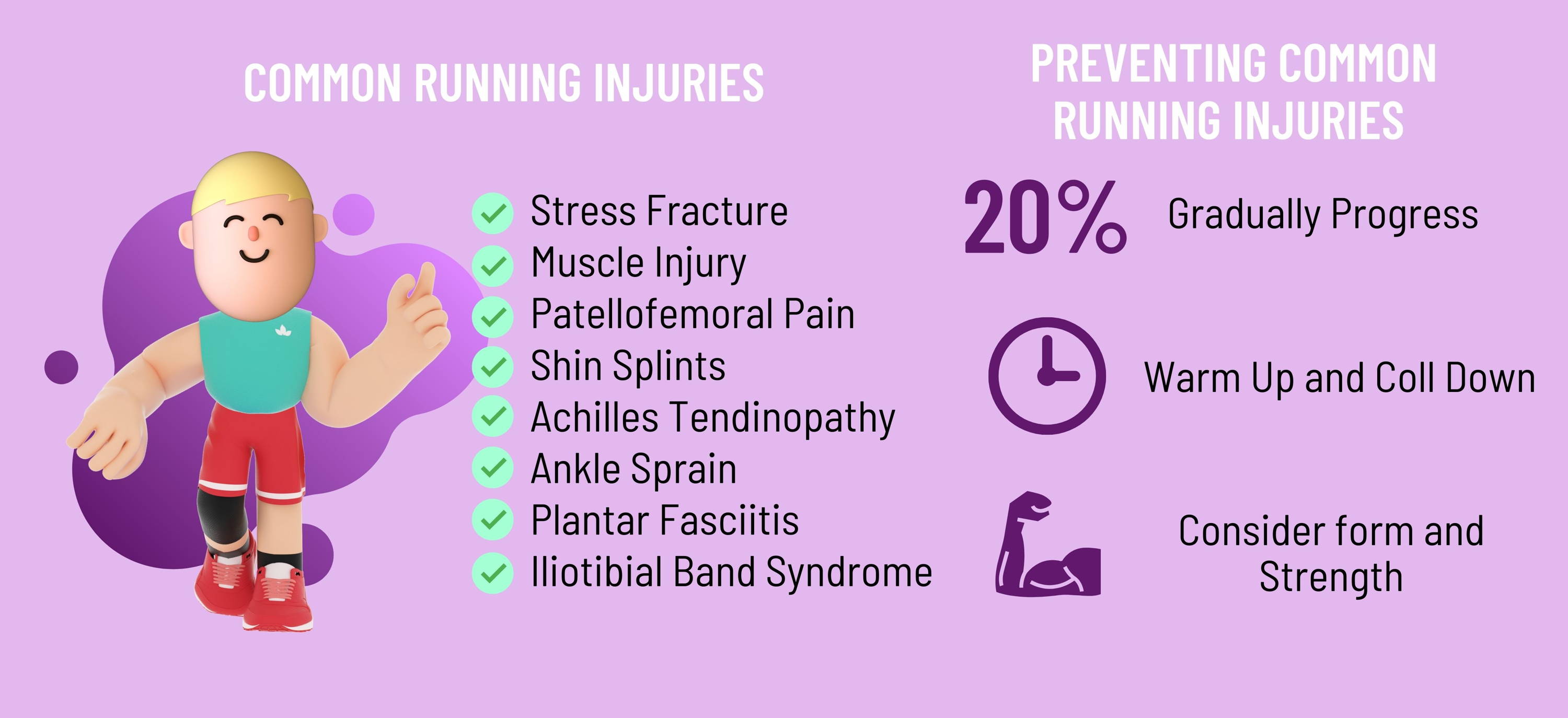
When you’ve finished your first marathon, make sure to take time off running for a few weeks. How often should runners have recovery weeks? I will answer that in the following article! If you are an avid runner or want to run more marathons, then this is important information for you.
The best way to get better at something is by practicing it regularly, but if we practice too much without taking breaks, our bodies can end up suffering and not improving as quickly as they could be otherwise.
Be mindful of how many days per week (or hours) that you need to rest from running after completing such a huge accomplishment like finishing your first all-out race.
Cold and Hot Compress for running recovery week
Warm Compress: Apply a warm compress to help the muscles relax and loosen if you have muscular pain or tightness.
Cold Compress: Ice is applied as soon after an acute injury or irritating a chronic problem as possible. Ice is utilized to reduce swelling and inflammation.
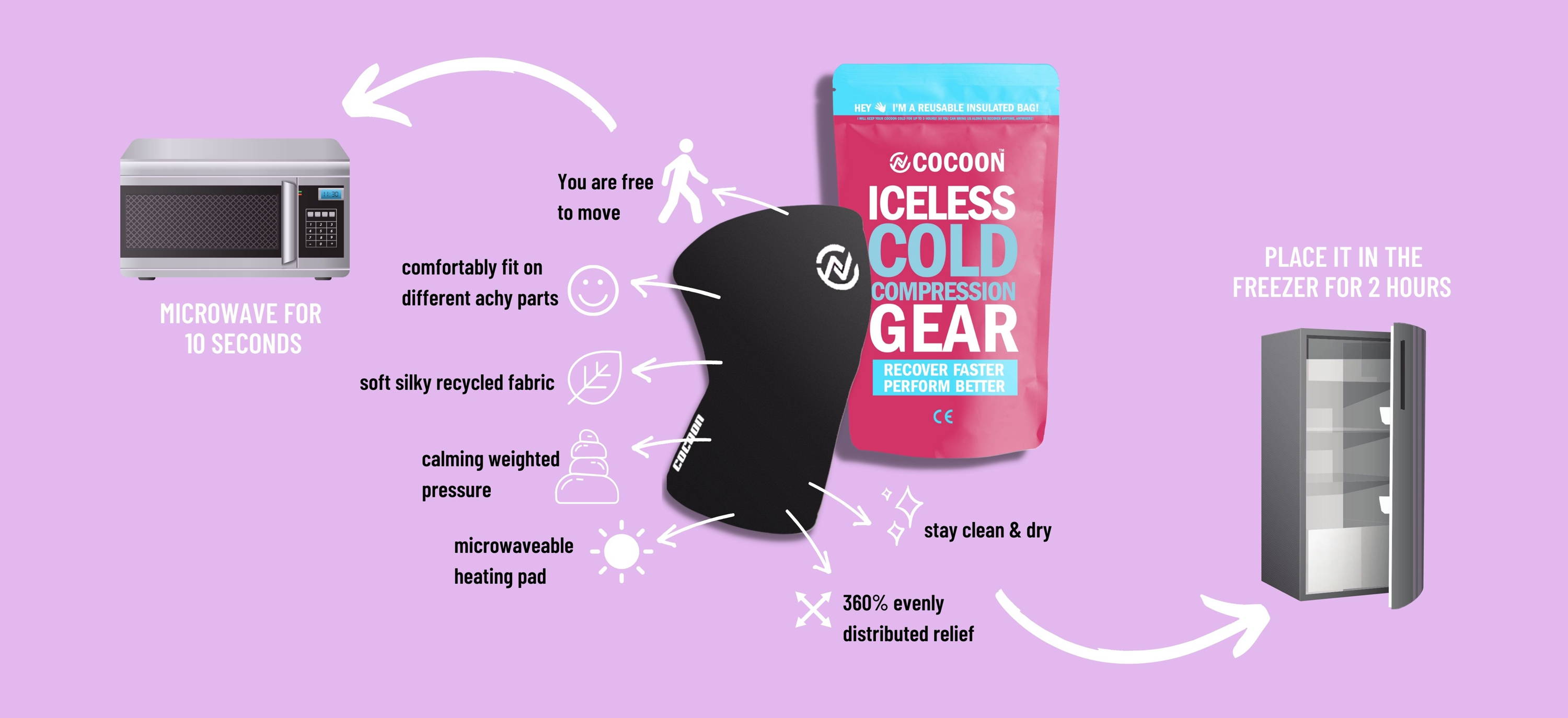
Meet Cocoons
Cocoons cold and hot compression therapy, keeps the recovery of the injured tissues to heal. It wraps gentler on your knee, leg, arm, elbow or ankle, which is more comfortable for a runner, while also allowing more movement throughout the day while wearing it.
It can provide outstanding pain relief while helping you get back into shape faster. Cocoons are unique since they utilize 100% leakproof hydrogel, allowing you to have the simplest and most comfortable session without dealing with the mess.

